In the Badlands of South Australia, Mother Nature has painted the ragged outback landscape in bold and ancient colours.

What had been dull pre-dawn outlines of weathered hills are now coming to glorious, vivid life. As the sun hits the peaks they turn pink and gold, seeming to catch fire as iron deposits react to the soft, creeping light.
Quickly, we park our SUV in the designated area and follow the well-defined path towards the nearest summit. My guide is Nick Crase, a retired geologist, who’s spent much of his life in outback South Australia. But he’s never been to the Painted Desert before.
“It’s amazing,” Nick says, his awe a mix of a tourist’s delight and geologist’s understanding. “Brilliant!”
We reach a high point and look west. The sun is now spreading across the flat, bare plain, stretching towards the grove of trees where Arckaringa Station homestead is located. The Painted Desert is just a small part of this giant 2745sq.km pastoral leasehold.
The homestead is roughly two-thirds of the way from Coober Pedy to Oodnadatta on a good-quality gravel road. It’s the logical place to spend the night if you want to watch the dawn show, because camping is not allowed in the Painted Desert itself and there is no accommodation available there.
This place is a dramatic contrast to the drive from Coober Pedy across the famous Moon Plain. Red and strewn with gibber rocks, it’s so barren and flat that it was used as the backdrop to the apocalyptic film Mad Max: Beyond Thunderdome and was the perfect foil to the colour and glamour of The Adventures of Priscilla, Queen of the Desert.
This story is from the September-October 2018 edition of Australian Geographic Magazine.
Start your 7-day Magzter GOLD free trial to access thousands of curated premium stories, and 9,000+ magazines and newspapers.
Already a subscriber ? Sign In
This story is from the September-October 2018 edition of Australian Geographic Magazine.
Start your 7-day Magzter GOLD free trial to access thousands of curated premium stories, and 9,000+ magazines and newspapers.
Already a subscriber? Sign In
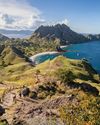
SULAWESI SENSATIONS
There are worlds within worlds and marvels untold waiting to be experienced on Indonesia's remote islands.
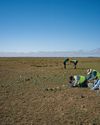
SEARCHING FOR AUSSIE DINOSAURS
Our understanding of where to find ancient life in Australia has been turned on its head by a new appreciation of the country's geology. Now the world is looking to our vast outback as the latest hotspot to locate fossils.
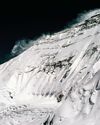
THE HARDEST NIGHT
The first Australian ascent of Mt Everest in 1984 is one of the great feats of mountaineering. Climbed by a small team semi-alpine style, with no bottled oxygen, via the Great (Norton) Couloir, it remains unrepeated 40 years later.
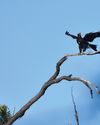
WEDGE-TAILED WONDER
The chance discovery of an eagle nest leads to an extended vigil observing normally hidden behaviours of one of nature's supreme winged marvels.
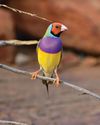
BURDENED BY BEAUTY
Northern Australia's Gouldian finch survives in huge numbers in cages around the world, but its wild population continues to struggle.
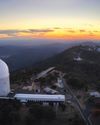
A TELESCOPE FOR A GOLDEN AGE
After a stellar 50 years as one of the country's major scientific assets, the AAT continues to play a major role in keeping Australian astronomy on the world stage.
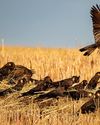
COCKY WHISPERING AT COOMALLO CREEK
This patch of remnant bush on the edge of the West Australian wheatbelt is a place loved by one of Australia's rarest bird species and the man who has studied the site for more than 50 years.

A PIONEERING PAIR
Louisa Atkinson and her mother, Charlotte, were among Australia's earliest authors, and pioneers in women's rights.
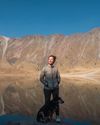
THE LONGEST WALK
Lucy Barnard is walking from Argentina to Alaska -the length of the Americas - on an extraordinary journey of endurance and adventure.
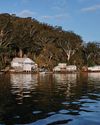
SECLUDED, BUT NOT ALONE
In an era of heightened social isolation, where many of us lead lonely lives, Dangar Island offers the chance to be part of a supportive, connected community.